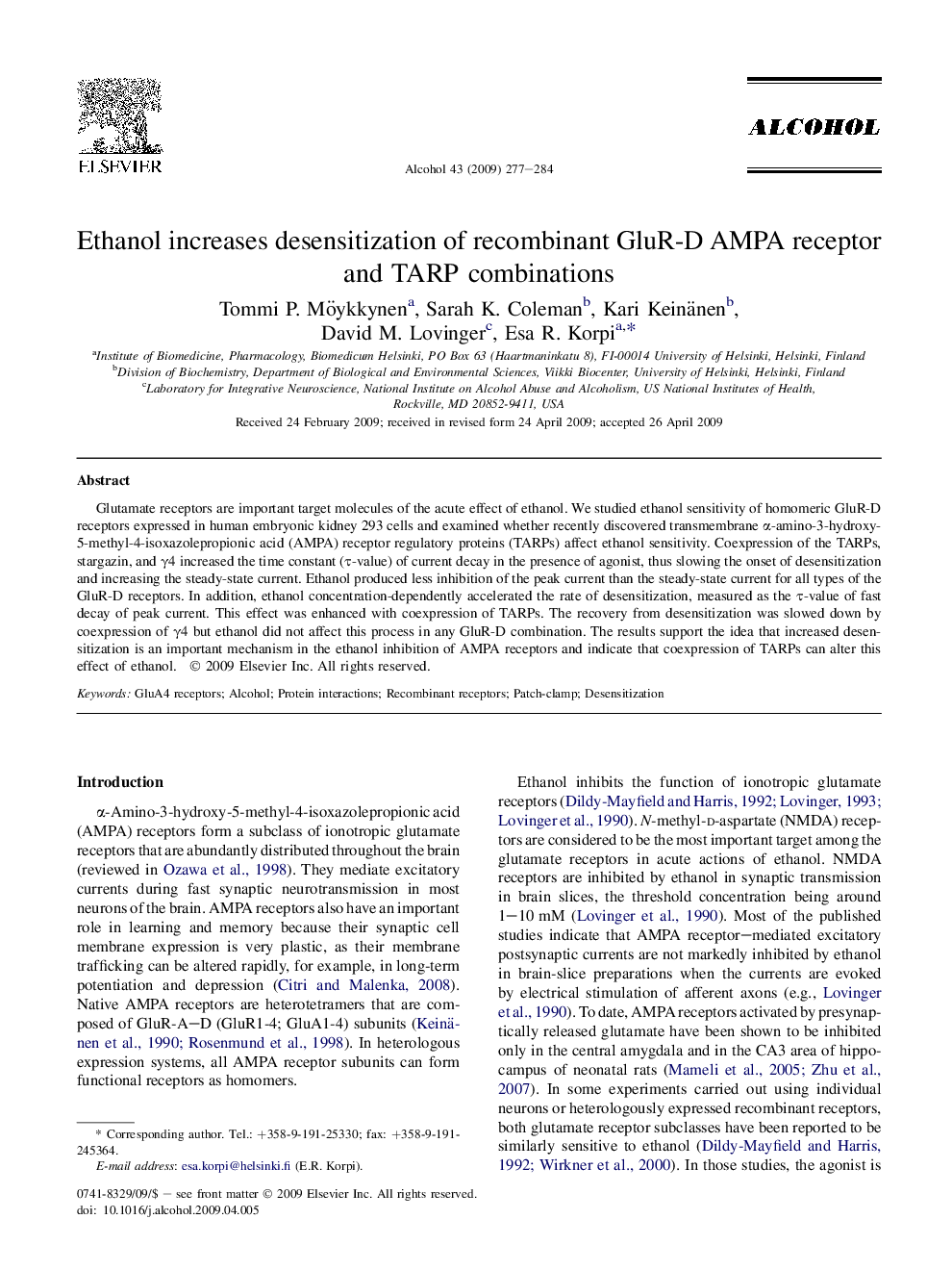| Article ID | Journal | Published Year | Pages | File Type |
|---|---|---|---|---|
| 1067234 | Alcohol | 2009 | 8 Pages |
Glutamate receptors are important target molecules of the acute effect of ethanol. We studied ethanol sensitivity of homomeric GluR-D receptors expressed in human embryonic kidney 293 cells and examined whether recently discovered transmembrane α-amino-3-hydroxy-5-methyl-4-isoxazolepropionic acid (AMPA) receptor regulatory proteins (TARPs) affect ethanol sensitivity. Coexpression of the TARPs, stargazin, and γ4 increased the time constant (τ-value) of current decay in the presence of agonist, thus slowing the onset of desensitization and increasing the steady-state current. Ethanol produced less inhibition of the peak current than the steady-state current for all types of the GluR-D receptors. In addition, ethanol concentration-dependently accelerated the rate of desensitization, measured as the τ-value of fast decay of peak current. This effect was enhanced with coexpression of TARPs. The recovery from desensitization was slowed down by coexpression of γ4 but ethanol did not affect this process in any GluR-D combination. The results support the idea that increased desensitization is an important mechanism in the ethanol inhibition of AMPA receptors and indicate that coexpression of TARPs can alter this effect of ethanol.
